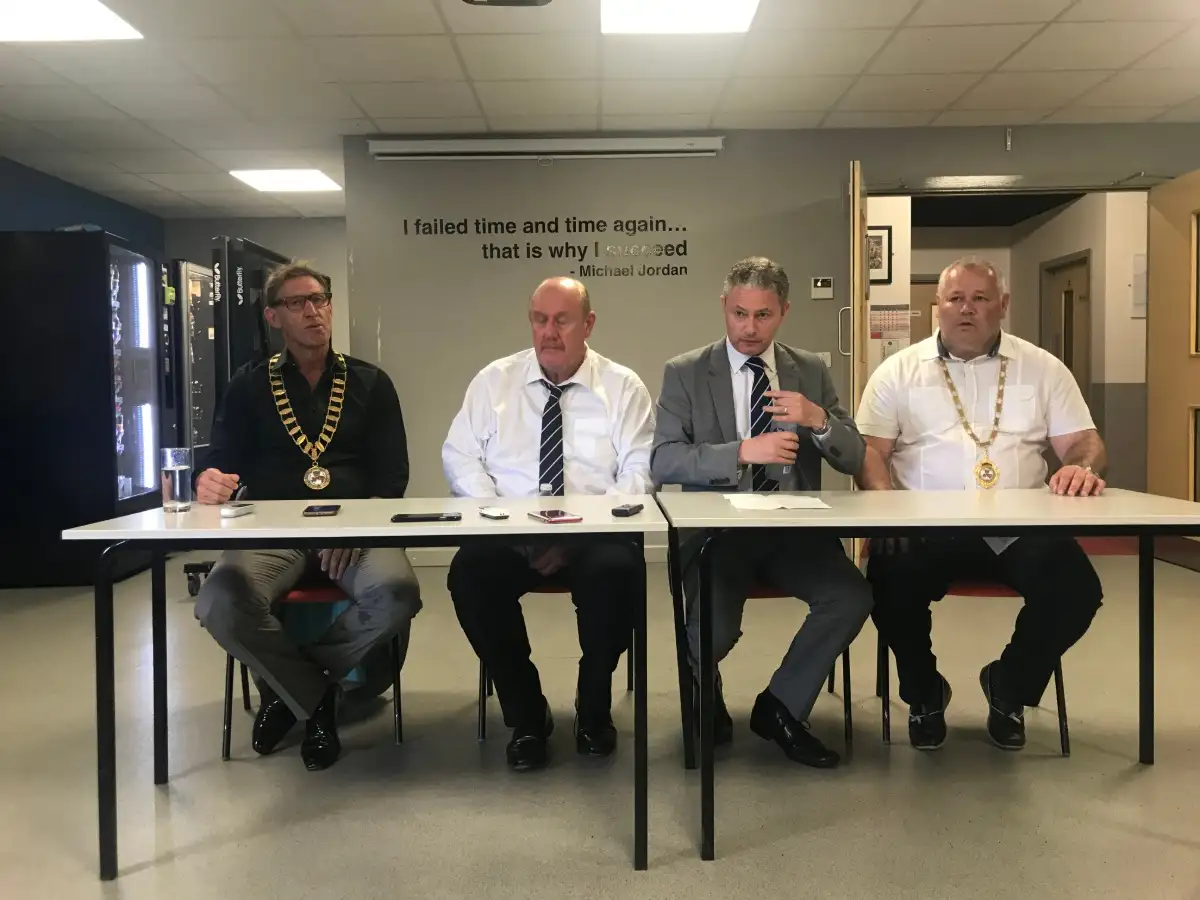Opportunity knocks for rugby league after “awful” 18 months

Rugby league finds itself at a critical junction ahead of the 2021 World Cup – and the message is clear, be positive.
After a turbulent 18 months, which saw Super League split from the RFL, the governing body is moving forward with leadership its priority.
With Super League keen to chase its own commercial and broadcast revenue, and with rumours that Championship clubs may well seek to do the same, that may finally enable the RFL to focus on what it should be by definition – governance.
The uncertainty surrounding the broadcast deal, and its impact on the structure of the professional game, is unavoidable. All that can be done is to ensure that this doesn’t happen again.
The Our League app is going someway to ease those concerns, and you could ask the question whether rugby league even needs a broadcast deal at all – and that maybe, playing to its strengths and maximising its existing audience via their own platform, as the likes of darts and squash have done, might put it on a stronger footing moving forward.
Outgoing chairman Brian Barwick has received criticism, while there remains scepticism as to whether rugby league can afford to have two chief executives – Super League’s Robert Elstone and Ralph Rimmer of the RFL – in position when its economic future is so uncertain.
New vice president, Carl Hall, said: “The last 18 months were tough, awful at times, for all of us but these guys (the board) did everything they could to try and mediate the situation.
“I would have hated to be in these guys shoes. They’ve had to calm people down, people going off in the papers and saying what they want.
“What’s done is done. The sport’s moving on.”
As the 2019 season promises to come to an exciting climax, even before the Great Britain tour, already attention is starting to turn to the 2021 World Cup, which promises to be a pivotal point for rugby league in this country.
It’s hard not to think that the same was said about the 2013 World Cup, which while it was a relative success and certainly an enjoyable tournament to cover, there was no real lasting legacy and the opportunity to build on that was perhaps wasted – though maybe would have been easier had England not succumbed to New Zealand in heartbreaking fashion in the semi-final.
While the international calendar is still not scheduled anywhere near far enough in advance, there does appear to be acceptance that Australia will be on these shores next season, though who they will play seems to be bizarrely uncertain – as the confusion between the Great Britain and England sides reigns supreme.
But interim chairman Simon Johnson has already said he will do everything he can to highlight the positives of the game, and this is a must for the game to attract the commercial and broadcast revenues that it desires.
Hall added: “The sport on the field is in fantastic shape this season and hopefully that continues to the World Cup.
“The ultimate outcome of the World Cup is we all want full stadiums for the BBC, every game is live on the BBC and we want every game to be the hottest ticket in town.
“I genuinely think where the sport is heading is in the right direction and I’m really excited coming to 2021.
“I think we can be in a totally different place came 2021 and I will do everything I can. I always speak so positive about the sport, I’m indebted to the sport.”
Kiwi Hall first came to the UK with Doncaster in 1988, playing more than 150 games for them in three spells, as well as turning out for Hull KR, Bradford, Leeds, Featherstone and York.
He is now chief executive at League 1 side Doncaster, which is owned by the Club Doncaster brand that also owns Doncaster Rovers FC.
Their Keepmoat Stadium will host three World Cup games.